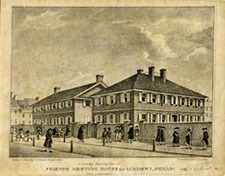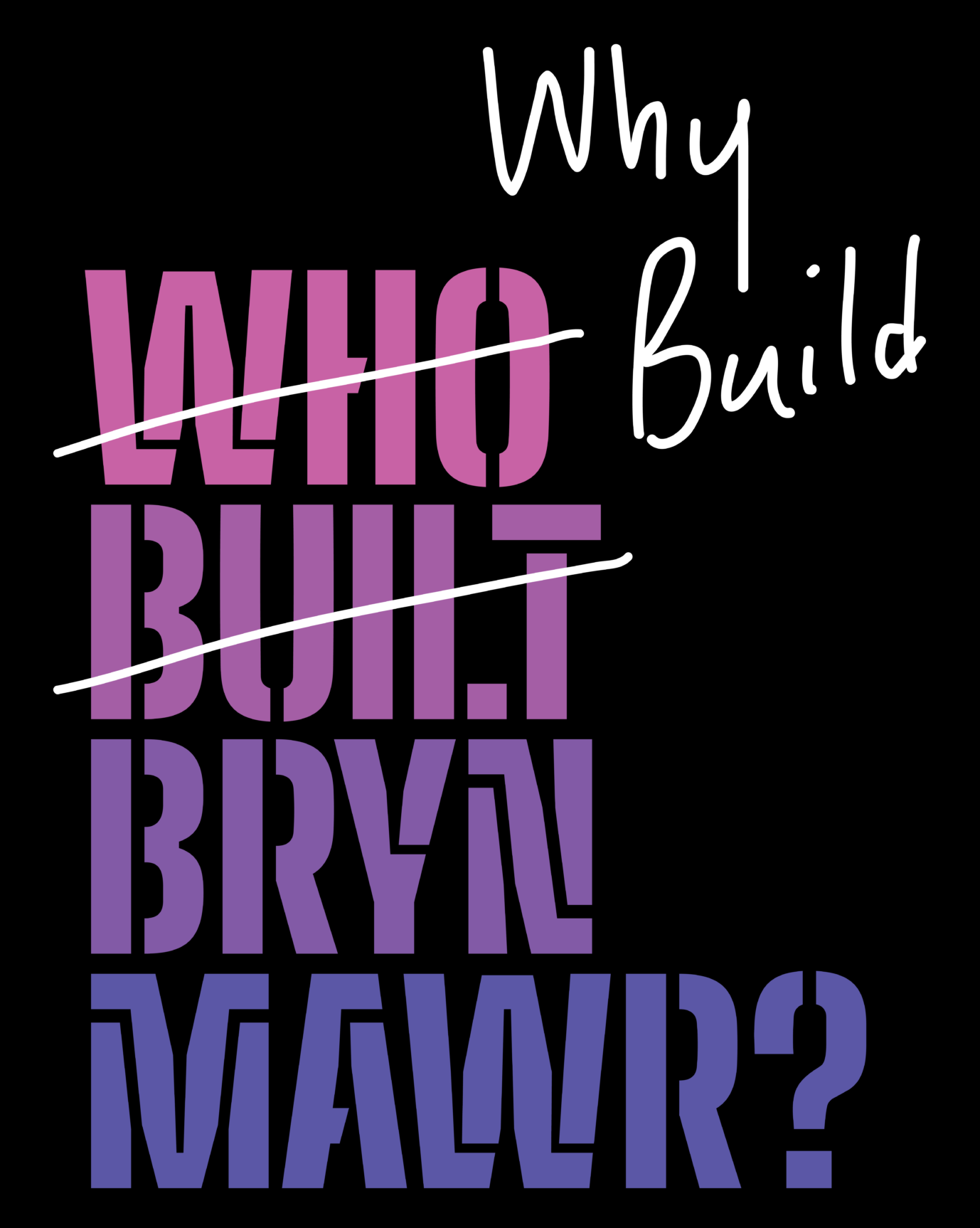
A Monday Morning View of Friends Meeting House and Academy, Philada. Forty Years Ago, 1829
Lithograph
Haverford College Collections, HC2016-504_1
The depiction at left of the Friends Meeting House in Philadelphia was an already nostalgic representation in 1829. It looks back 40 years to represent a Quaker meeting house and academy fitted simply in unpainted brick with functional shutters, chimneys, and an unassuming entryway. The community’s locus of worship and education is surrounded by high walls that guard it from the worldly influence of the public street. The long, dark coats and broad hats worn by several white men walking near the wall reflect Quaker plain dress, in contrast to those wearing coattails near the open gateway.
In the lower left corner, two Black children in outgrown clothing run away from the meeting house and academy and into the street. Quakers operated orphanages for Black children in the Antebellum era, such as the Shelter for Colored Orphans in Philadelphia. Yet, many Quakers were reluctant to fully accept formerly enslaved people into their community, judging them worthy of freedom, but not Friendship.
Seeking to preserve the clarity of their religious beliefs, Quakers educated their children within the bounds of their community, avoiding worldly influences. They undertook a similar approach in the education of non-Quakers, embracing this work as part of a larger Christian civilizing mission.
Quakerism 101
These foundational terms and concepts are highlighted throughout the exhibition. A complete list of key terms is available on the Glossary page.
Quaker (n): member of the Christian denomination known as the Society of Religious Friends founded in 1650 by George Fox in England. Central beliefs included pacificism, simplicity, and cultivating an Inner Light in oneself and honoring it in others.
Inner Light (n.): a personal sense of the divine
Simplicity (n.): a core tenant of Quakerism that promotes living without extravagance in personal comportment, worship, and one’s material possessions and so as to direct financial and other resources toward meaningful and socially beneficial ends
White supremacy (n): an ideology that positions white people as superior to and destined to hold control over people of other races. It encompasses systems of power that support and sustain inequities benefitting white people based on a belief in the inherent inferiority of other races.
Paternalism (n): the policy or practice on the part of people in positions of authority to restrict self-determination of those subordinate to them, while claiming to serve the latter’s best interest.
Freedman (n.): a formerly enslaved person; in the late nineteenth century, a term commonly used in reference to Southern Blacks liberated in the wake of the Civil War
Christian civilizing mission (n): a project of the nineteenth-century closely tied to colonialism, imperialism, and Westward Expansion that professed an obligation to proselytize non-Christians, especially those considered uncivilized because they resisted assimilation to Euro-North American social practices and values.
Guarded (adj.): an environment where Quaker values are taught and secular influence is restricted
Worldly (adj.): referring to anything non-Quaker. Clothes and architecture or clothing not made of simple, quality materials were considered worldly, as was an education that was too secular.
Plain dress (n): the donning of purposefully archaic and unfashionable garments coupled with rejection of sartorial excess and a preference for functionality in order to make a public statement regarding an individuals’ rejection of worldly influence
Friendship (n.) the fellowship or community of Friends (Quakers); membership in the Society of Friends.
